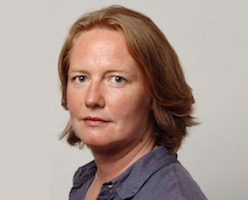
Emily Bell: How a new research effort will help newsrooms determine what’s next
Columbia University’s Graduate School of Journalism announced today it will launch a new research effort to develop best practices for digital journalism, with funding from the Knight and Tow Foundations. Each of the projects will be short term, to help newsrooms evolve quickly. Here, Emily Bell, director of the Tow Center for Digital Journalism, writes about the initiative.
Ten years ago, the benefits of a web presence were still debatable in many newsrooms, five years ago almost nobody used Twitter for journalism, four years ago ‘data journalism’ was a minority interest, three years ago most news outlets had never developed a mobile app, today very few newsrooms use sensor networks or automated text services to help provide stories for consumer audiences.
Nobody who works as a journalist needs to be reminded of the pace of change in the field. New tools, different platforms, dynamic audiences and an extraordinary expansion of options for storytelling challenge every individual journalist and every newsroom on a daily basis.
The melting of what was once a predictable industrial process into a fluid stream of possibilities is at the same time liberating and threatening, as it brings with it questions of skills and sustainability. When I joined Columbia University from the Guardian in 2010 as the first director of the Tow Center for Digital Journalism, one of the motivating factors was the need to find out more about what journalism’s needs and opportunities might be. The funding from Knight Foundation and the Tow Foundation for this major research initiative gives us the ability to do exactly that.
The knowledge gap that exists between the cutting edge of data science, how information spreads, its effects on people who consume information and the average newsroom is wide. We want to encourage those with the skills in these fields and an interest and knowledge in journalism to produce research projects and ideas that will both help explain this world and also provide guidance for journalism in the tricky area of ‘what next’. It is an aim to produce work which is widely accessible and immediately relevant to both those producing journalism and also those learning the skills of journalism.
We are focusing on funding research projects which relate to the transparency of public information and its intersection with journalism, research into what might broadly be termed data journalism, and the third area of ‘impact’ or, more simply put, what works and what doesn’t.
In the next few weeks, we will be advertising for a research director to lead the initiative and publishing details for those who have ideas and wish to apply for funding. All projects will be selected as part of an open and competitive tendering process. Although we imagine that a number of applicants for research grants will come from those who are experts in research, we also want to hear from those with skills and insights from within the journalism and technology communities. The best questions often come from those who are closest to the ground.
We will be updating progress of the project and providing full details of how and where to apply for funding in the coming weeks and months, with the aim of having our first projects in place within the next few months. Anyone with initial thoughts and ideas can contact me, [email protected] for further details.
Recent Content
-
Journalismarticle ·
-
Journalismarticle ·
-
Journalismarticle ·


